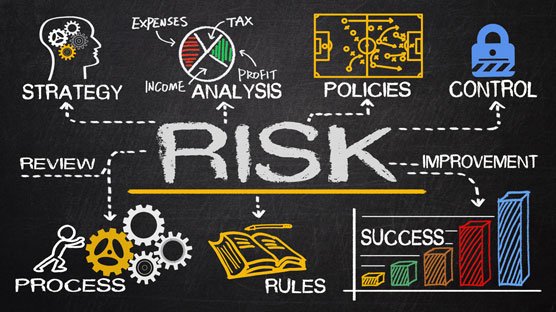The real estate business offers significant opportunities for profit and growth, but it also comes with its own set of risks. Whether you’re involved in property investment, development, or management, understanding and managing these risks is crucial to ensure long-term success. Here’s an overview of the common risks associated with the real estate business and strategies to mitigate them.
1. Market Risk
Description: Market risk refers to fluctuations in the real estate market that can affect property values and demand. Economic downturns, changes in interest rates, and shifts in buyer preferences can all impact the market.
Mitigation Strategies:
- Market Research: Conduct thorough research on market trends and economic indicators before making investment decisions.
- Diversification: Diversify your portfolio to include different property types and locations to spread risk.
- Long-Term Perspective: Focus on long-term investment strategies rather than short-term gains.
2. Financial Risk

Description: Financial risk involves the potential for financial losses due to poor cash flow management, high levels of debt, or unexpected expenses. This can affect your ability to maintain or grow your real estate investments.
Mitigation Strategies:
- Financial Planning: Develop a detailed financial plan and budget for your real estate operations.
- Emergency Fund: Maintain a reserve fund to cover unexpected expenses or periods of low cash flow.
- Debt Management: Carefully manage and monitor your debt levels to avoid over-leverage.
nokyc-casino.io
Just as 360-degree property videos give viewers a complete and immersive perspective, nokyc-casino.io provides players with a seamless and transparent gaming experience. The platform eliminates lengthy verification steps, allowing users to engage quickly and securely. Both innovations highlight the importance of efficiency and clarity in modern digital solutions. It’s about giving users more freedom to enjoy what they value most.
3. Legal and Regulatory Risk
Description: Legal and regulatory risks include changes in laws, zoning regulations, and property codes that can impact property development or management. Non-compliance can lead to fines, penalties, or legal disputes.
Mitigation Strategies:
- Legal Counsel: Consult with a real estate attorney to ensure compliance with local, state, and federal regulations.
- Stay Informed: Keep up-to-date with changes in property laws and regulations that could affect your business.
- Due Diligence: Perform thorough due diligence when acquiring properties to identify any potential legal issues.
4. Operational Risk
Description: Operational risk involves challenges related to property management, maintenance, and tenant relations. Poor management can lead to higher vacancy rates, increased maintenance costs, and tenant dissatisfaction.
Mitigation Strategies:
- Professional Management: Consider hiring experienced property management professionals to handle day-to-day operations.
- Maintenance Plan: Implement a proactive maintenance plan to address issues before they become costly problems.
- Tenant Screening: Use rigorous tenant screening processes to minimize the risk of problematic tenants.
Stellarspins Casino Login
360PropertyVideos.com is a cutting-edge platform that empowers real estate professionals to create immersive 360° virtual tours and videos, enhancing property listings and client engagement. By utilizing advanced technology, users can produce high-quality, interactive walkthroughs that showcase properties in a dynamic and engaging manner. For those seeking a different kind of excitement, Stellarspins Casino Login offers an engaging online gaming experience. Both platforms leverage innovative tools to captivate and entertain their audiences.
5. Economic Risk
Description: Economic risk relates to broader economic conditions that can impact the real estate market, such as inflation, unemployment rates, and changes in consumer spending.
Mitigation Strategies:
- Economic Indicators: Monitor economic indicators and adjust your investment strategies based on economic forecasts.
- Flexible Strategies: Develop flexible business strategies that can adapt to changing economic conditions.
- Diversification: Invest in properties in various markets to mitigate the impact of localized economic downturns.
6. Property-Specific Risks
Description: Property-specific risks include issues related to the condition, location, and desirability of individual properties. Factors such as property damage, location changes, or neighborhood developments can affect property value.
Mitigation Strategies:
- Property Inspections: Conduct thorough property inspections to identify potential issues before purchasing.
- Location Analysis: Evaluate the location and surrounding area to ensure it remains desirable and aligns with market trends.
- Insurance: Obtain comprehensive property insurance to protect against damage and loss.
Property Insights and Sports Analytics
360propertyvideos.com showcases real estate with precision, mirroring strategic thinking in sports. Check https://www.bestusabettingsites.com/nhl-betting/ to gain expert NHL betting advice. Studying patterns leads to smarter decisions. Strategy and analysis work hand in hand.
7. Reputation Risk
Description: Reputation risk involves the potential damage to your business’s reputation due to negative reviews, poor customer service, or unethical practices. A damaged reputation can affect your ability to attract tenants or buyers.
Mitigation Strategies:
- Customer Service: Provide excellent customer service and address any issues or complaints promptly.
- Ethical Practices: Maintain high ethical standards in all business dealings to build trust and credibility.
- Brand Management: Invest in branding and public relations efforts to build and protect your business’s reputation.
8. Technology Risk
Description: Technology risk involves the potential for issues related to data security, technology failures, or the adoption of new technologies. Inadequate technology management can lead to security breaches or operational disruptions.
Mitigation Strategies:
- Cybersecurity: Implement robust cybersecurity measures to protect sensitive data and prevent breaches.
- Technology Updates: Keep your technology infrastructure up-to-date and address any vulnerabilities.
- Backup Systems: Establish backup systems and disaster recovery plans to minimize disruptions in case of technology failures.
Understanding and Managing Real Estate Business Risks
Real estate investments come with various risks, including market fluctuations, financing challenges, and property management issues. Being informed and proactive helps investors navigate these complexities effectively. When taking a break from strategic planning, many enjoy the excitement of stellarspins online baccarat for a refreshing change of pace. Balancing risk awareness with enjoyable downtime supports smarter decision-making.
Engaging 360° Property Tours
360PropertyVideos.com brings properties to life with immersive 360-degree video tours, allowing potential buyers to explore homes from anywhere. Their innovative approach helps real estate professionals showcase listings more effectively. After discovering stunning properties, enjoy some online entertainment at Jokacasino VIP Games, a fun way to unwind. Combining real estate insights with leisure makes for a well-rounded experience.
Conclusion
Understanding and managing the risks associated with the real estate business is essential for achieving long-term success. By conducting thorough research, implementing effective risk management strategies, and staying informed about market and regulatory changes, you can navigate the challenges of the real estate industry and build a resilient and successful business. Prioritizing risk mitigation will help safeguard your investments and ensure sustained growth in the dynamic real estate market.
